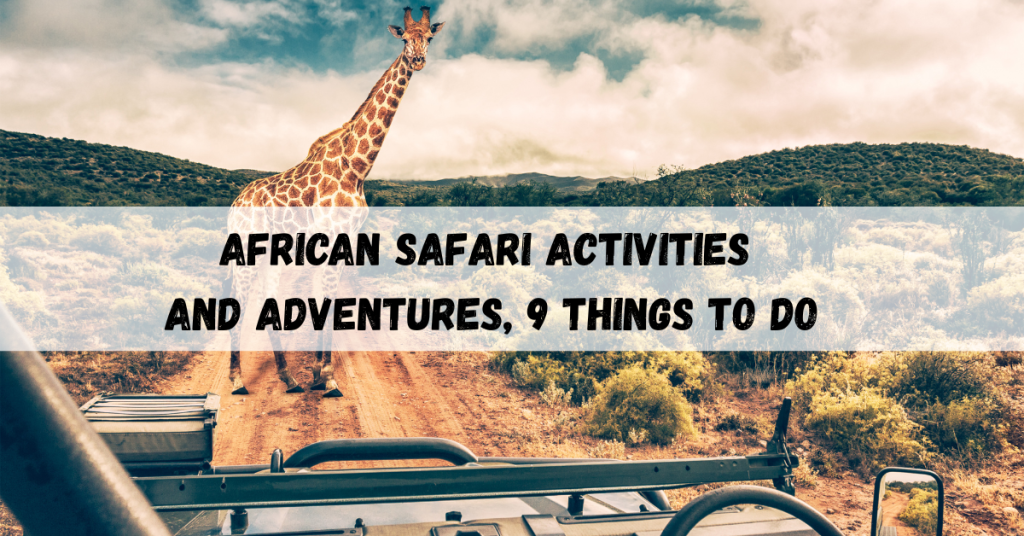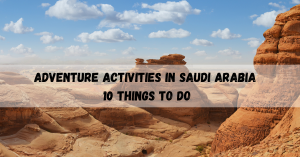An African safari is not just a vacation, it’s a wild adventure that immerses you in nature’s raw beauty. Whether you’re tracking lions across the savannah, gliding above the plains in a hot air balloon, or sitting quietly by a watering hole, waiting for a herd of elephants to arrive, every moment is magical. But beyond game drives, African safaris offer a range of thrilling activities for every kind of traveler. From adrenaline-pumping adventures to cultural experiences, let’s explore the best things to do on an African safari.
The Ultimate African Safari Experience
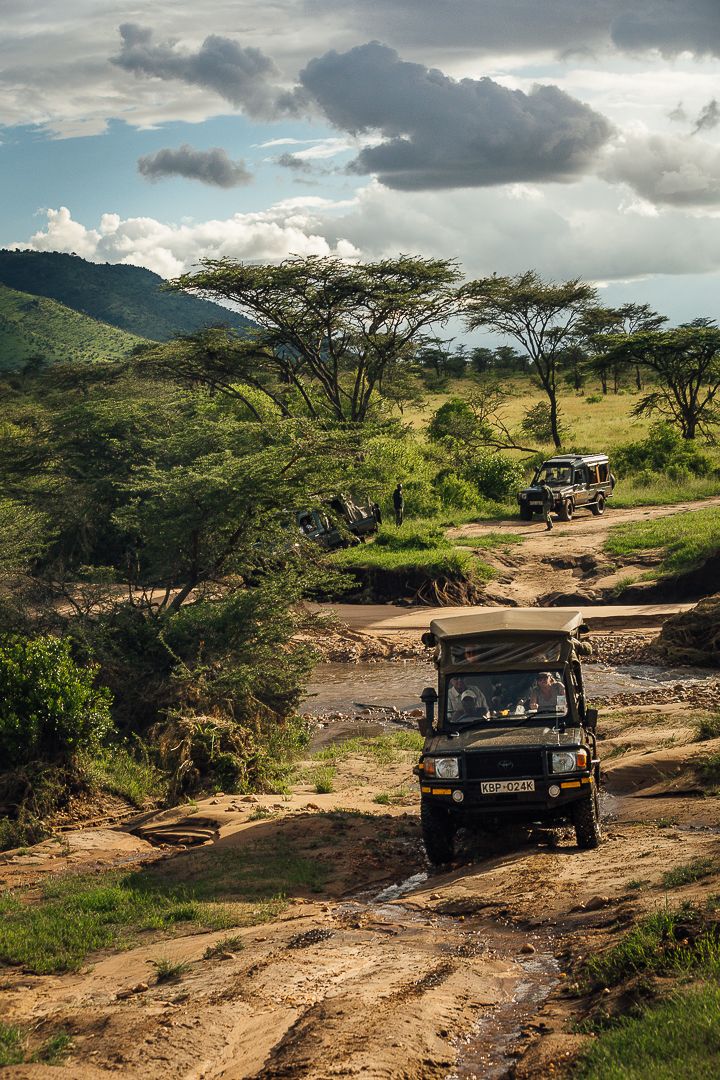
An African safari is a perfect blend of adventure and relaxation. With stunning landscapes, diverse wildlife, and breathtaking sunsets, it provides an unparalleled connection with nature. Whether you choose a traditional jeep safari, a walking tour, or a boat cruise, every experience is unique.
Best Safari Destinations in Africa
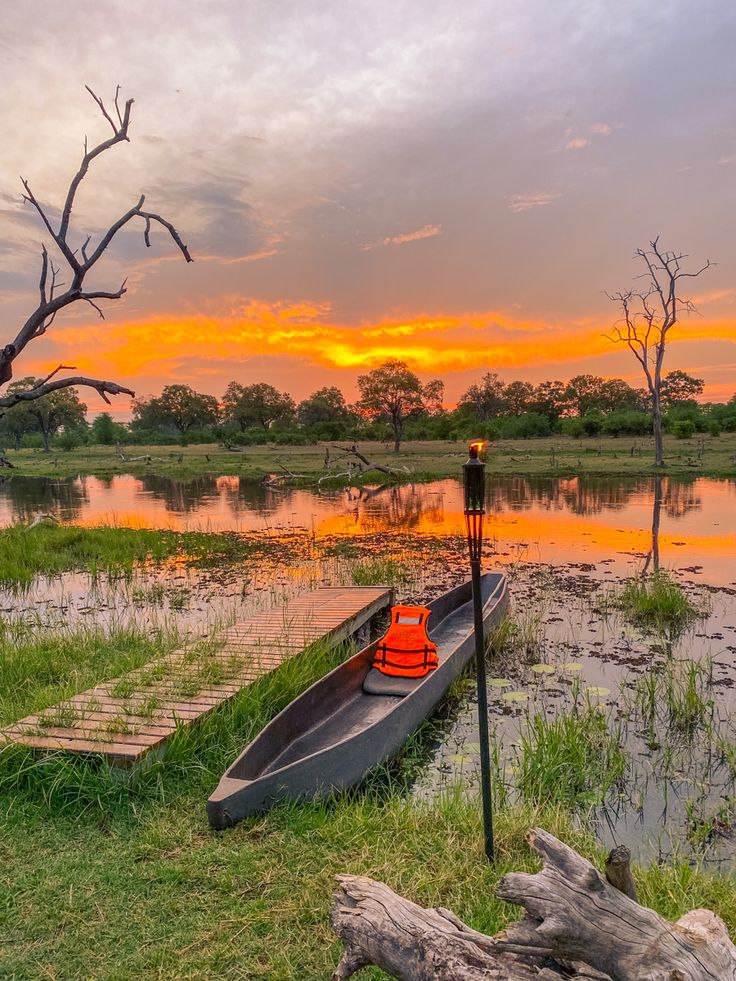
Africa is home to some of the world’s best safari destinations. Here are a few must-visit locations:
- Kenya & Tanzania: Famous for the Great Migration in the Serengeti and Maasai Mara.
- Botswana: The Okavango Delta, a unique wetland safari experience.
- South Africa: Kruger National Park, ideal for first-time safari-goers.
- Namibia: Etosha National Park, known for vast landscapes and desert wildlife.
Thrilling Activities in an African Safari
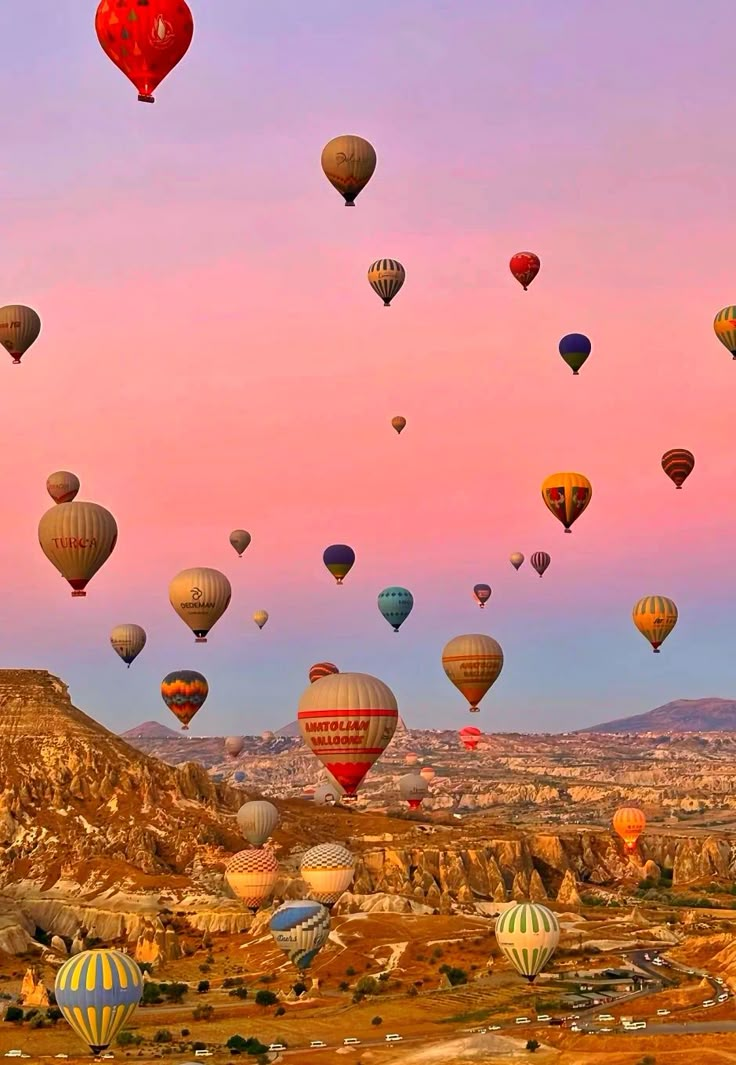
Hot Air Balloon Safari: Experience breathtaking aerial views as you float over the African plains at sunrise. From above, you’ll witness wildlife roaming freely and the vastness of the landscape stretching beyond the horizon. A champagne breakfast often awaits you upon landing, making it a once-in-a-lifetime experience.
Boat Safari on African Rivers: Not all safaris happen on land! A boat safari along the Chobe or Zambezi River lets you witness hippos, crocodiles, and elephants from a unique perspective. The gentle ride, combined with the mesmerizing African sunset, makes it a peaceful yet thrilling adventure.
Walking Safaris
- Step off the safari vehicle and onto the African soil, guided by expert trackers who teach you how to read animal tracks, identify bird calls, and understand the language of the wild.
- Experience the thrill of standing just a few feet away from zebras, giraffes, or even an elephant—without the safety of a vehicle.
Night Game Drives
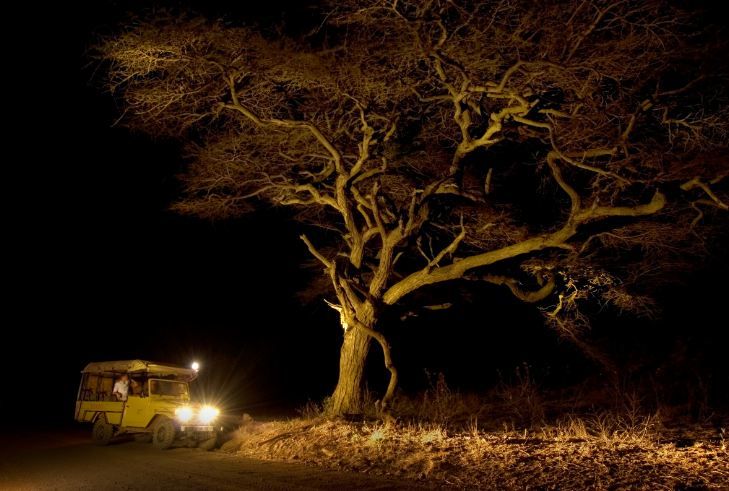
- The African wilderness transforms at night, with nocturnal predators like leopards, hyenas, and owls taking center stage.
- Special spotlights illuminate the dark, revealing animals that remain hidden during the day, offering a rare glimpse into the secret world of Africa after sunset.
Camping Under the Stars
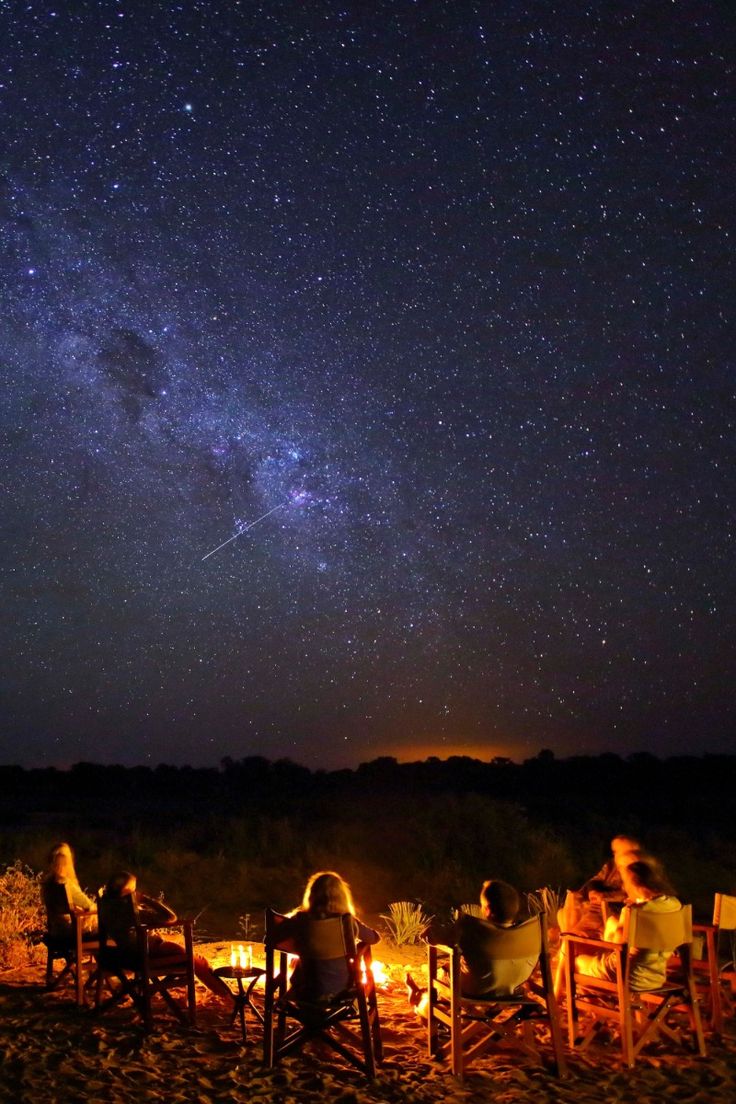
Spending a night under the African sky is an experience like no other. Whether in a luxury tented camp or a simple bush campsite, the thrill of being surrounded by nature is unforgettable. As the sun sets, the sky transforms into a dazzling display of stars, with the distant roars of lions and the soft chirping of crickets creating an authentic wilderness soundtrack.
Some camps offer open-air star beds, allowing you to sleep under the vast Milky Way with only a mosquito net separating you from nature. Others are located near watering holes, where elephants and other wildlife may pass by during the night. For the adventurous, mobile camping safaris move from location to location, providing an immersive and raw bush experience.
No matter the setup, camping on an African safari allows you to disconnect from the modern world and embrace the wild in its purest form.
Cultural Encounters with Indigenous Tribes
An African safari isn’t just about wildlife—it’s also about people. Meeting indigenous tribes offers a deeper understanding of Africa’s heritage, traditions, and way of life.
The Maasai of Kenya & Tanzania
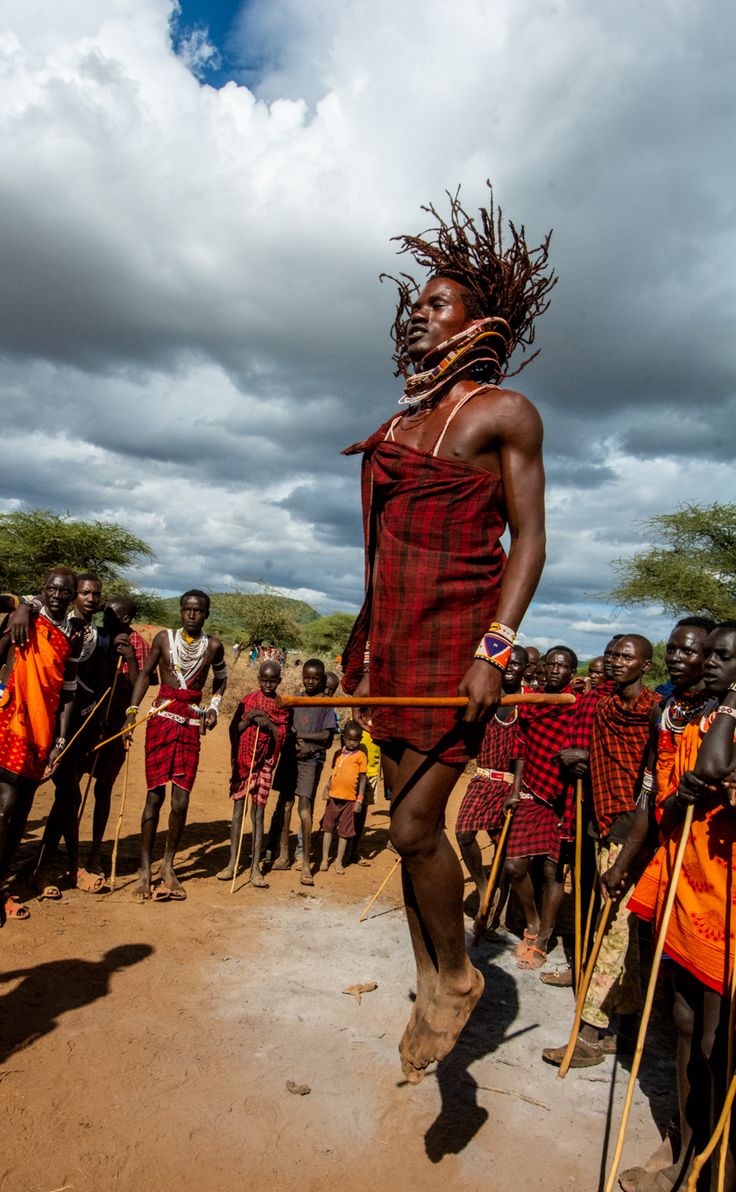
Famous for their red robes and high-jumping dances, the Maasai people welcome visitors into their villages (Manyattas) with traditional songs and performances. You can learn how they track wildlife, participate in fire-making demonstrations, and hear their fascinating folklore.
The San Bushmen of the Kalahari
One of the oldest surviving cultures, the San people share their ancient survival skills through guided bushwalks. They demonstrate animal tracking, fire-making, and foraging techniques, all while speaking in their unique click-based language.
The Himba of Namibia
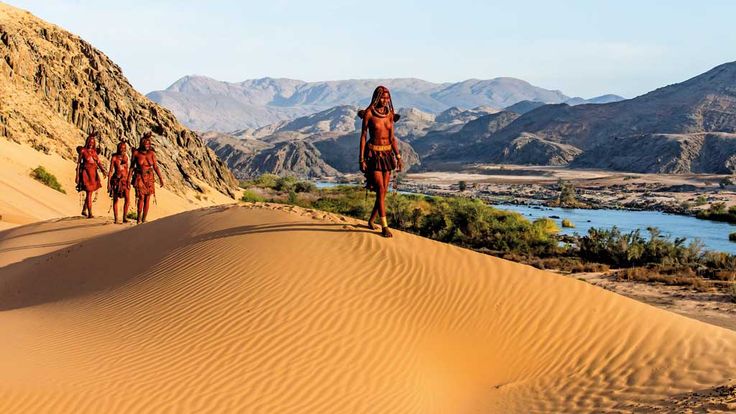
Known for their red-ochre-covered skin and intricate hairstyles, the Himba people offer a glimpse into their semi-nomadic lifestyle. Visitors can observe beauty rituals, cattle-rearing traditions, and sacred fire ceremonies, which are central to their spiritual beliefs.
Engaging with these tribes provides a rare cultural immersion that enriches the safari experience while supporting sustainable tourism.
Birdwatching Adventures
Africa is home to over 2,000 bird species, making it a paradise for bird enthusiasts. From the vibrant lilac-breasted roller to the majestic African fish eagle, every safari presents unique birdwatching opportunities.
Botswana’s wetlands, Uganda’s forests, and Kenya’s savannahs are prime spots to observe rare species. Flamingos paint Lake Natron pink, while Pel’s fishing owl hides in the Okavango Delta. Whether on foot, by boat, or during a game drive, Africa’s birdlife is a must-see for nature lovers.
Exciting 4×4 Safari Drives
A 4×4 safari drive is the ultimate way to explore Africa’s wilderness. These rugged vehicles navigate diverse terrains savannahs, woodlands, and riverbeds leading to unforgettable wildlife encounters.
Morning drives offer the best chances to see predators hunting, while late-afternoon safaris showcase stunning sunsets. For thrill-seekers, off-road and night drives provide rare glimpses of elusive creatures like leopards and bush babies. No two game drives are ever the same, making each safari an adventure of discovery.
Photography Expeditions in the Wild
Africa’s breathtaking landscapes and wildlife make it a dream for photographers. Golden sunrises, dramatic savannahs, and thrilling animal encounters create picture-perfect moments. Capture a cheetah’s sprint, a lion’s piercing gaze, or the dust rising from a wildebeest migration.
Top spots include the Serengeti for the Great Migration, the Okavango Delta for water reflections, and Namibia’s deserts for surreal landscapes. Guided photography safaris ensure optimal lighting, angles, and expert tips for stunning shots.
Best Time to Visit for Safari Adventures
The best time for a safari depends on what you want to experience:
- June to October (Dry Season): Ideal for wildlife viewing, as animals gather around scarce water sources, making them easier to spot. The thinner vegetation also improves visibility, and this period aligns with the Great Migration in East Africa.
- December to March (Green Season): Lush landscapes come alive, creating stunning scenery for photography. It’s also the best time for birdwatching and witnessing newborn animals, as many species give birth during this period.
While both seasons offer incredible experiences, choosing the right time depends on your interests, whether it’s predator action in the dry season or the vibrant, green beauty of Africa’s wilderness during the rainy months.
Essential Safari Packing List
Packing smart is key to a great safari experience. Make sure to bring:
- Neutral-colored clothing to blend into the environment.
- A good pair of binoculars for spotting distant wildlife.
- A high-quality camera with extra memory cards.
- Sunscreen, a hat, and insect repellent for protection.
- Comfortable, sturdy walking shoes.
Responsible Tourism & Conservation Efforts
Supporting ethical safari operators ensures that your trip benefits local communities and helps protect wildlife. Many lodges focus on sustainability, using eco-friendly practices and contributing to conservation projects. Choosing responsible tourism helps preserve Africa’s beauty for future generations.
An African safari is more than just a trip, it’s an adventure filled with unforgettable moments. Whether soaring above the savannah in a hot air balloon, walking alongside elephants, or enjoying a boat ride through crocodile-filled waters, every experience is unique. From the thrill of the hunt to the serenity of a sunset over the plains, an African safari is a journey into the heart of the wild.
Frequently Asked Questions (FAQs)
What is the best African country for a safari?
Kenya, Tanzania, South Africa, and Botswana are among the best, each offering unique experiences and wildlife sightings.
How much does an African safari cost?
A budget safari starts at around $1,000, while luxury safaris can exceed $10,000, depending on the location and accommodation.
Do I need vaccinations before going on a safari?
Yes, vaccinations such as yellow fever and malaria prevention are recommended. Always check with your doctor before traveling.
Is an African safari safe?
Yes, as long as you follow the guidelines of your guide and stay inside your vehicle during game drives.
What is the best time of year for a safari?
The dry season (June-October) is best for wildlife viewing, while the green season (December-March) is ideal for birdwatching and photography.
